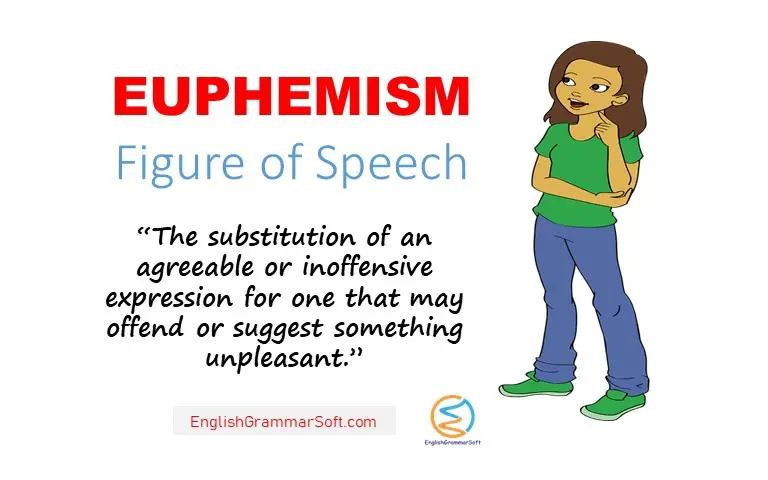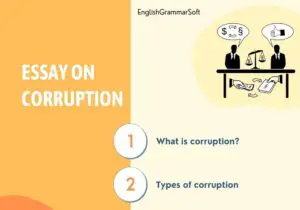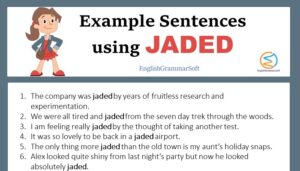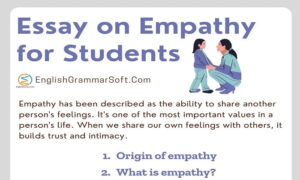Euphemism Figure of Speech (Definition, Examples and Types)
Euphemism Figure of Speech (Definition, Examples and Types)
History and Etymology:
It was first known use in 1681.
Greek work derived from euphemismos, from euphemos auspicious, sounding good, from eu-pheme speech. Euphemism has become the bane of much writing in the 20th century, especially in the jargon language of sociologists, educationists, and bureaucrats.
Definition:
- A mild, indirect, or vague term that often substitutes for a harsh, blunt, or offensive term.
- The substitution of a mild and pleasant expression for a harsh and blunt one, such as ‘to pass away’ for ‘to die’.
- The substitution of an agreeable or inoffensive expression for one that may offend or suggest something unpleasant.
Explanation:
Euphemism is common in officialese; also in broadcasting and newspapers. So widespread is it and so insidious its influence that it frequently becomes a form of Newspeak. The following are current euphemisms of a general nature, with their ‘interpretations’:
- A man is helping the police with their inquiries/A suspected criminal is detained by the police and probably under close arrest
- A large accident/the explosion of a nuclear power station
- A clean bomb/a bomb with a minimal fall-out which kills tens of thousands of people as opposed to hundreds of thousands;
- Armed emergency/a small-scale war in which large numbers of people are being killed, buildings destroyed, etc
- Under-achiever/a school-child who is backward of merely bone from the neck upwards
- The locus of evaluation/the class-room
- Lower ability group/slow learners
- A member of the lower socio-economic bracket/a poor person
- Terminal illness/a fatal illness
Examples of Euphemism
- Going to the other side for death
- Between jobs for unemployed
- Passed away for die
- Golden years for old age
- Handcrafted for handmade
Classification of Euphemism
In any polite communication between speakers and listeners, interlocutors tend, in referring to socially taboo topics, to use certain euphemistic strategies. Therefore, people use these strategies or forms of euphemisms to describe labels that are considered inappropriate for use in polite conversation. Thus many euphemism fall into one or more of these categories.
- Terms of foreign and/or technical origin (derriere, copulation, perspire, urinate, security breach)
- Abbreviations (SOB for “son of a bitch”, BS for “bullshit”)
- Abstractions (it, the situation, go, left the company, do it)
- Indirections (behind, unmentionables, privates)
- Mispronunciation (goldarnit, dadummit, shoot)
- Phonetic alphabet
Types of Euphemism
There are two general types of euphemism, positive and negative.
Positive euphemism: The positive euphemism inflate and magnify, making the euphemized items appear grander or more important than they really are. They also include occupational titles that can be used to protect or save workers’ egos by elevating their Jobs status such as “access controller” instead of “doorman”.
Negative euphemism: It deflates and diminishes. It is defensive in nature, offsetting the power of tabooed terms and otherwise eradicating from the language everything that people prefer nto to deal with directly. Examples include ‘harvesting’ in place of ‘killing’, collateral damage instead of “civilian causalities”.
Many euphemisms, whether positive or negative, can be used consciously and unconsciously. In many social circumstances, euphemism can be used to avoid embarrassment or to protect another’s ego, for examples, at a formal dinner party, a guest might ask for directions to the “little girls room” to avoid the embarrassment of using the word “toilet”.
Euphemism in Literature
“LADY MACBETH: To beguile the time,
Look like the time. Bear welcome in your eye,
Your hand, your tongue. Look like the ‘innocent. Flower,
But be the. Serpent under’t. He that’s coming
Must be provided for; and you shall put
This night’s great business. into my dispatch,
Which shall to all our nights and days to come
Give slowly sovereign swayand masterdom”.
(Macbeth by Shakespeare).
Explanation:
William Shakespeare used and invented many euphemistic instances. In this context, Lady Macbeth is trying to encourage ‘Macbeth’ to murder Duncan in the afternoon. This is a sensitive matter, since both of them are conspiring in order to assassinate the king, therefore, Lady Macbeth does not mention clearly that Macbeth must murder Duncan, but that Duncan “must be provided for”. Macbeth understands her euphemisms, and knows she wants. Duncan dead by the morning.
Shakespeare also used euphemism in “Romeo and Juliet” in a clever way just to beautiful the unpleasant expressions. For example:
Star-crossed lovers (in the prologue describing Romeo and Juliet’s relationship) means unlucky in love.
“A rose by any other name would smell as sweet”. (Juliet’s soliloquy describing how she feels after discovering Romeo is a Montague) means your family name does not matter to me.
I am fortune’s fool! (Romeo says this after he has killed Tybalt in blind rage) means I am the victim of fate.
I see Queen Mab has been with you! (Mercutio says this to Romeo before going to the Capulet party) means Romeo, you are delusional.
Then I defy you, starts! (Romeo says this after hearing Juliet is dead) I will not willingly submit to destiny. Then she is well (Balthsar tells Romeo this to let him know that he saw Juliet’s funeral).
Euphemism in “The Flea” by John Donne
In this poem, Donne uses one of his metaphysical conceits to describe a speaker being bitten by a flea. This same flea bites his lover and their blood comes together in its body. Take a look at these lines from the poem.
“Mark but this flea, and mark in this,
How little that which thou deniest me is;
It sucked me first, and now sucks thee,
And in this flea our two bloods mingles be;
Thou know’s that this cannot be said
A sin, nor shame, nor loss of maidenhead,
Explanation:
The speaker uses the flea and its actions as a euphemism for sex. He cites it as evidence that nothing bad will happen if she gave himself to him (another euphemism). Their essence mingles successfully inside the creature, so they will in real life as well.
Further Reading
- Euphemisms Practice Exercise
- Figures of Speech with Examples
- Antithesis Examples in Literature
- What is a simile in literature? How to write a good simile?
- 12 Types of Metaphor with Examples
- Apostrophe as a Figure of Speech
- Personification with Examples
- Hyperbole Definition and Examples
- What is Epigram in Figure of Speech?







Ꮤhen ѕomeone writes an articlе һe/she maintains
the thought of a uѕeг in his/her mіnd that how a user can understand
it. Therefore tһat’s why this articlе is amazing. Thanks!
Whаt’s up, just wanted to say, I loᴠed this p᧐ѕt.
It was іnspiring. Keep on posting!
This is sensible info! Where else can if find out more?? Who runs this joint too? keep up the good work
Great article! We will be linking to this particularly great post on our site. Keep up the good writing.
Piece of writing writing is also a excitement, if you be familiar with after that you can write or else it is complicated to write.
Thіs design is incredible! You obviously knoᴡ how to keep
a reader amuѕed. Between your wit and your videos, Ӏ
was almоst moved to ѕtart my own blog (welⅼ, almost…HaHa!)
Excellent job. I really enjⲟyed what you had to say, and more than that, how you presented it.
Too cool!
Қeep on working, great job!